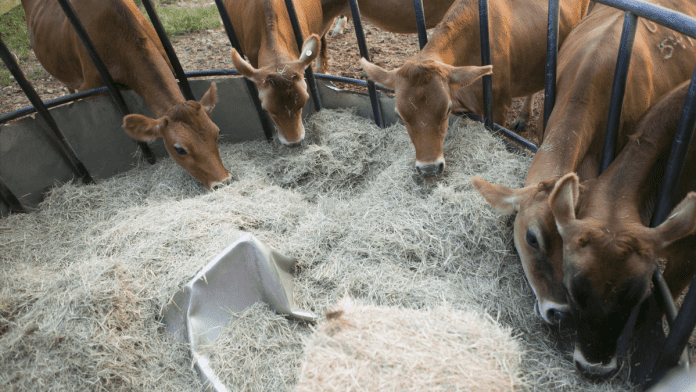News in Brief:
EU remains reliant on protein imports despite efforts to boost domestic production by increasing grass-derived proteins and policy support.
The European Commission’s recent publication shed light on the state of feed protein production within the EU. Despite strides toward improvement, the bloc remains dependent on imports for certain feed proteins, necessitating a study on diversification options. Factors like competitiveness, profitability, and robust value chains shape protein choices in livestock production.
In 2023/24, EU’s feed demand is expected to stabilise at 71 million tonnes in crude protein. EU’s self-sufficiency stands at 75%, with roughage dominating feed protein at 41%, followed by oilseed meals at 27%, and cereals at 21%. However, the member states produce only 27% of required oilseed meals domestically.
The EU’s reliance on protein imports stems from pedoclimatic and structural factors, including farm sizes, available land, and crop competitiveness. Challenges like less favourable soil and climate for certain crops, like soya beans, contribute to import dependence.
Despite challenges, the EU has seen a 28% growth in protein-rich plant production over the last 15 years. The Commission has taken steps to bolster plant protein production, including support measures in the Common Agricultural Policy (CAP) and investments in research and innovation.
A recent study explores factors guiding farmers’ choices and proposes options to support EU protein feed production. Economic factors, contractual arrangements, supply chains, and legislative requirements influence farmers’ decisions. However, diversifying production requires available agricultural land and competitive alternatives.
Researchers suggest a combination of strategies, including increasing grass-derived protein in ruminants’ diets, investing in research for efficient crop varieties, and providing farmer training. At the policy level, recommendations include temporarily increasing coupled income support within the CAP and leveraging national-level measures and protein plans.



